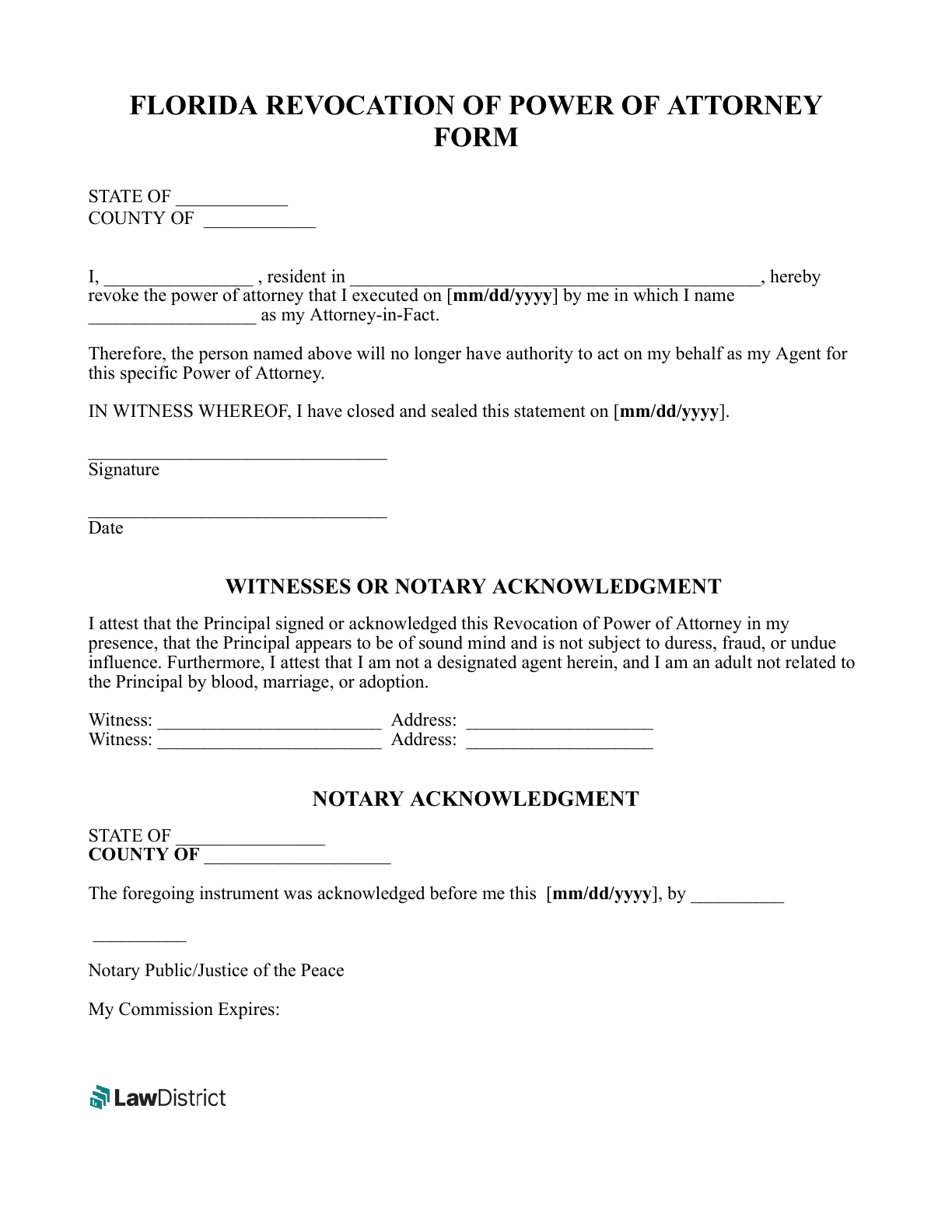Free Florida Power of Attorney Revocation Form
Ending a Power of Attorney (POA) in Florida requires a formal process. While state law gives you the right to cancel it at any time, there are important steps to follow so that your revocation is recognized.

How To Cancel a Power of Attorney in Florida
Florida law allows the person who created a POA — the principal — to revoke it at any time, as long as they are mentally capable. This is outlined in Florida Statutes § 709.2110.
To make the revocation valid, the document must:
- Be in writing
- Include the principal’s signature and the date
- Clearly refer to the specific POA being revoked (mention the original date and the agent’s name)
- Be delivered to the agent and any institutions relying on the original POA
You can download a Florida-specific POA revocation form, along with several other related documents, from this website.
Capacity and Legal Ability To Revoke
Only the principal can revoke their POA — and only if they still have legal capacity. This means they must fully understand the decision and its effects.
Once the principal has been declared incapacitated by a medical professional or court, the POA can only be ended through legal action. This could be decided through a guardianship case.
Notarization and County Recording in Florida
Florida law does not require notarization for a revocation to be legally effective. But getting the form notarized is highly recommended. It adds credibility to your document. It may also be requested by third parties like banks or title companies.
If your original POA was filed with the clerk of court (often the case in property matters), you should also record the revocation there. This helps avoid future issues with real estate or other transactions.
Delivery of the Revocation in Florida
Florida law stresses the importance of giving actual notice to all parties. The revocation won’t take effect until:
- The agent receives a copy
- Third parties relying on the POA (banks, hospitals, etc.) are informed
Use certified mail or hand-delivery when possible. Keep proof of delivery.